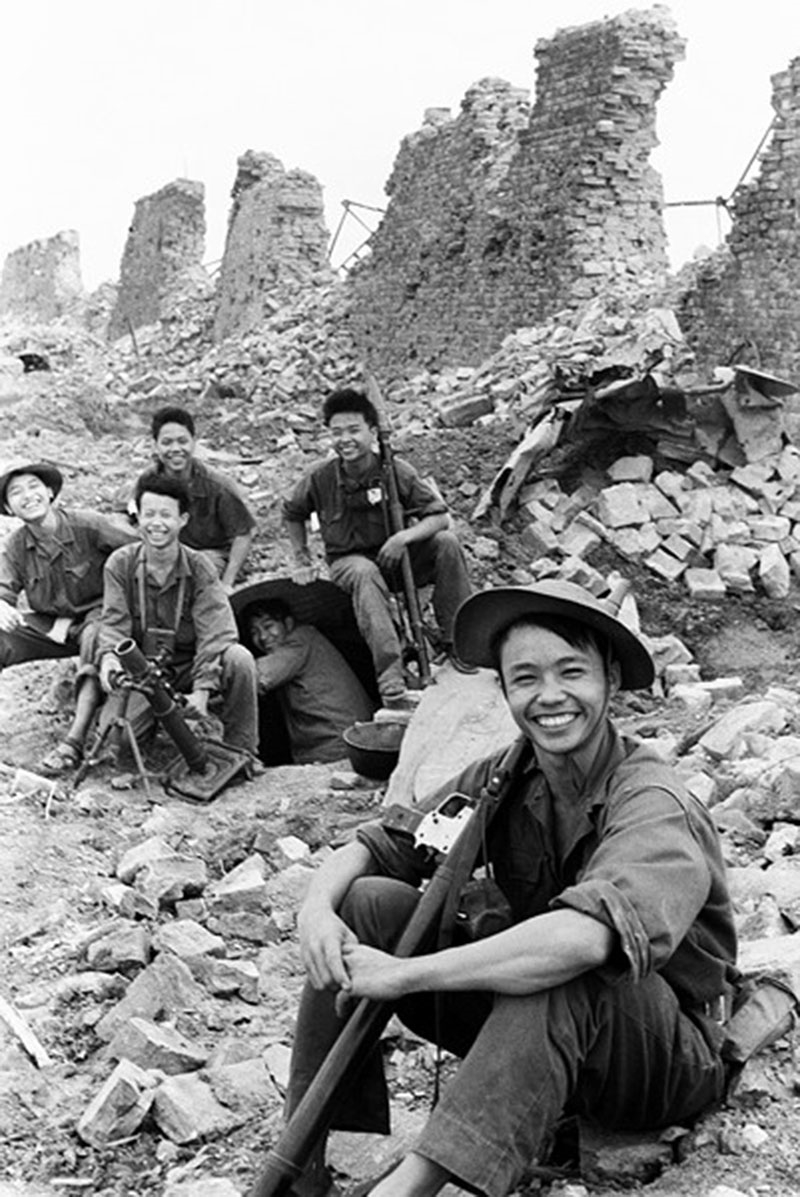The Battle of Quang Tri Ancient Citadel 1972

The Liberation Army of South Vietnam employed surprise, consecutive, and powerful attacks to seize the Quang Tri Ancient Citadel within a day. However, the U.S. and South Vietnamese forces refused to accept defeat and launched a fierce counterattack to retake the ancient citadel. They mobilized a massive combined force of naval, ground, and air units, utilizing an enormous amount of explosives to assault the citadel. According to estimates, during the 81 days and nights, the U.S. and South Vietnamese forces dropped approximately 328,000 tons of bombs on Quang Tri Ancient Citadel, equivalent to the destructive power of 7 atomic bombs that the U.S. dropped on Hiroshima in 1945. The ancient citadel was flattened, leaving only one relatively intact eastern gate and a few sections of walls.
Meanwhile, the Liberation Army of South Vietnam fought bravely and resiliently to hold onto the ancient citadel. They employed flexible resistance measures such as digging tunnels, setting up checkpoints, laying mines, sniping, and launching guerrilla attacks to inflict damage on the enemy forces and protect their positions. They eliminated two strategic enemy mobile divisions, killed 26,000 soldiers, captured 71, inflicted heavy damage on 19 battalions, destroyed 349 military vehicles, including 200 tanks and armored vehicles, shot down 205 aircraft, and seized 500 various types of firearms. In this battle, thousands of Liberation Army soldiers sacrificed heroically, leaving a profound mark on the nation's combat history.
The battle concluded on September 16, 1972, when the U.S. and South Vietnamese forces successfully recaptured the ancient citadel and a part of Quang Tri town. Nevertheless, the Liberation Army of South Vietnam still retained control over the northern half of Quang Tri province, strategic positions in the western extremity of the province, and surrounding areas of the ancient citadel, as well as vulnerable positions within the town. The Battle of Quang Tri Ancient Citadel played a significant role in shaking up the U.S. war policy and accelerating the Paris negotiations process to end the Vietnam War.

